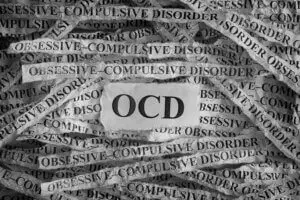An Ache That Runs Deep: An Interview on Church Hurt
November 25, 2024

A friend recently posted on social media, “Church members get more upset over sound, temperature, music, and sermon length than empty pews, prayer rooms, altars, and baptisteries.” We often spend a great deal of our time disappointed about church decisions that affect our personal preferences.
To me, that is not church hurt. I wanted a second opinion, so I asked my husband, who is a bivocational pastor as well as a trained counselor, to help me frame an understanding of church hurt. Here is a peek at our conversation.
Sandy: Frank, it seems everyone has a story of how they have experienced hurt at the hands of Christians through their local communities of faith. How would you define church hurt?
Frank: To hurt is to damage, disable, harm, injure, wound, or scar another. This could be spiritually, physically, emotionally, or psychologically. When this happens within the body of Christ, you might say it is church hurt.
Sandy: Things like betrayal, shaming, and bullying come to my mind. Those are huge. Yet other behaviors many Christians engage in on a regular basis could cause great pain as well, such as gossiping.
Frank: That’s very true. We tend to think primarily in terms of how we have been hurt. We should always consider how our words and actions affect others.
Sandy: I remember when I was a child, my father was a deacon at church. Someone came to him very hurt over something another church member had said to him. My father asked, “Have you talked to him about it?” The man said no. My father suggested he do so. The man worked up the courage to talk to the person who had hurt him. The other person had no idea his words had wounded this man. In fact, he was mortified. He offered an apology and clarification of his words. The two reconciled and became lifelong friends. If someone confided their hurt to you, what would you suggest they do?
Frank: What your father did in that situation was a great approach. It really varies according to how serious the situation that created the church hurt is. The first thing I would suggest is to pause and ponder. Is there possibly any truth in what was communicated? It’s hard to look inward. For some, confronting the person in an appropriate way will work. If the hurt is deeper, professional counseling may be needed. If it is physical or sexual in nature, obviously, it needs to be reported to the police.
Sandy: Sometimes we are hurt because of accountability. What is appropriate church accountability? Is being held accountable by someone in the church always church hurt?
Frank: Accountability does hurt whether it is done appropriately or inappropriately. But if done correctly, it is not church hurt. Matthew 18:15–17 outlines the proper steps to hold someone who sins accountable. Go privately to tell the offender his or her sin. If the offender does not listen, take one or two witnesses. If the offender still does not listen, tell the church. The problem is we tend to tell everyone in the church first in the form of gossip and skip the proper steps. Gossip results in church hurt. The goal is restoring the person to God and the church. We as individuals and as a church need to be ready to forgive when someone confesses and asks for forgiveness.
Sandy: When someone has been hurt, how do we help them move forward?
Frank: Remind them to deal only in known facts. Ask them, “What do you know for sure?” Sometimes we create catastrophic scenarios in our minds. Identify catastrophic thinking for what it is. Lean into God’s Word to help you be discerning as well as to calm fears and anxiety. As stated earlier, professional counseling may be needed for someone to move forward. It’s important to bring out thoughts and feelings about what created the hurt. Being able to deal with the emotions brought on by the hurt is critical. Ultimately, the only way to truly heal is to forgive. That can be a long and arduous journey.
Sandy: What if someone leaves one church because of the hurt they’ve experienced to join another? Is it acceptable to share past church hurt experiences?
Frank: In the appropriate place and time, yes. To gossip or vent to get back at the last church is not befitting a Christ follower. Communicating about past church hurt needs to be done with the understanding that it is shared in confidence.
Sandy: What if someone has left the church altogether because of past hurt? How do we minister to them?
Frank: Attempt to help them understand they need to deal with the hurt. It will hinder them in other areas of their life. Assure them you are always willing to listen and pray with them. Your first priority should be to help them retain or restore their relationship with God.
Sandy Wisdom-Martin is executive director-treasurer of WMU and is a pastor’s wife to Frank Martin, a hospice chaplain and bivocational pastor.
Disclaimer: The information shared in this article is not meant to diagnose or treat a mental health condition. We encourage you to follow up with your health-care provider and seek a mental health professional for individual consultation and care.























